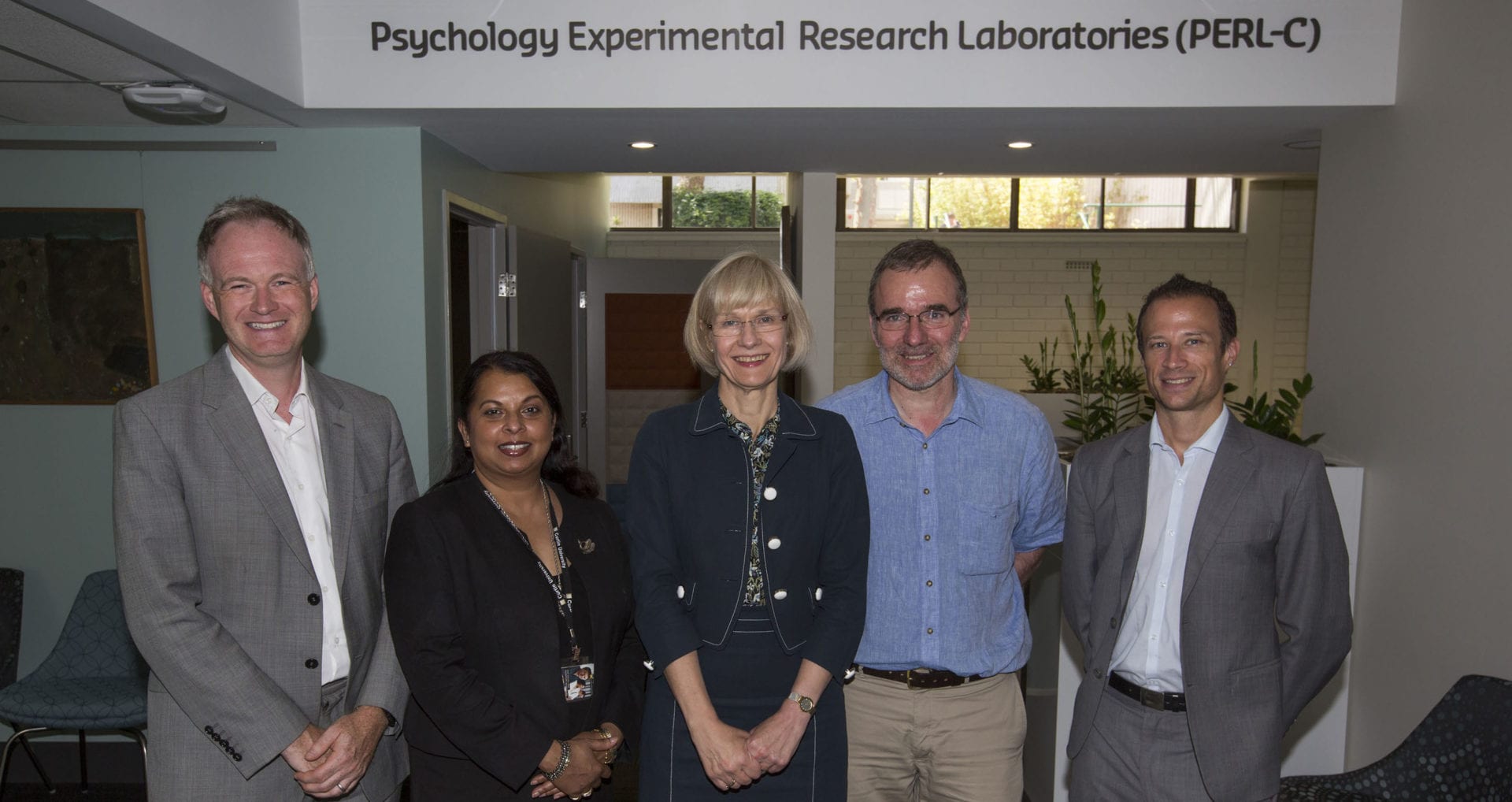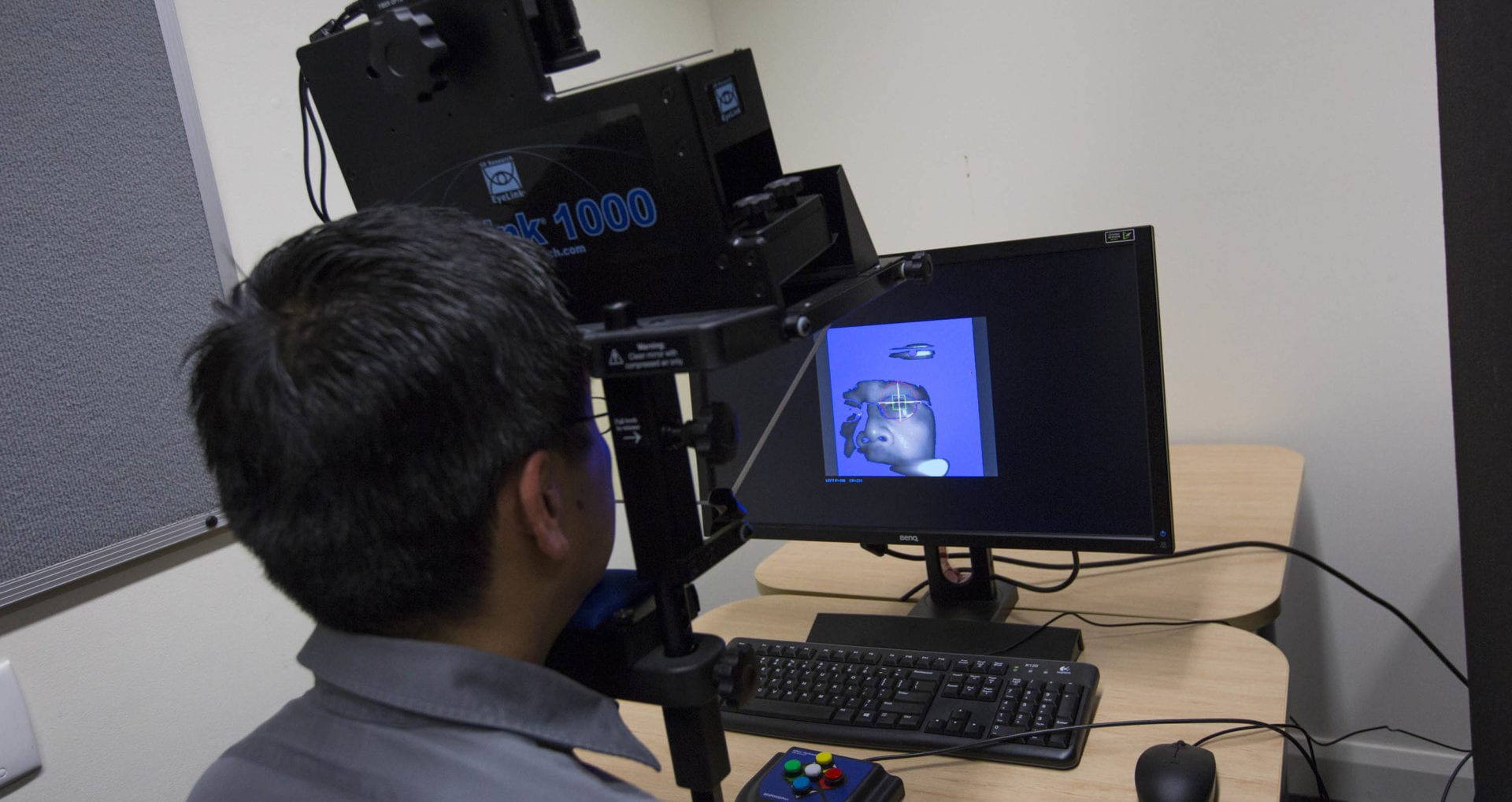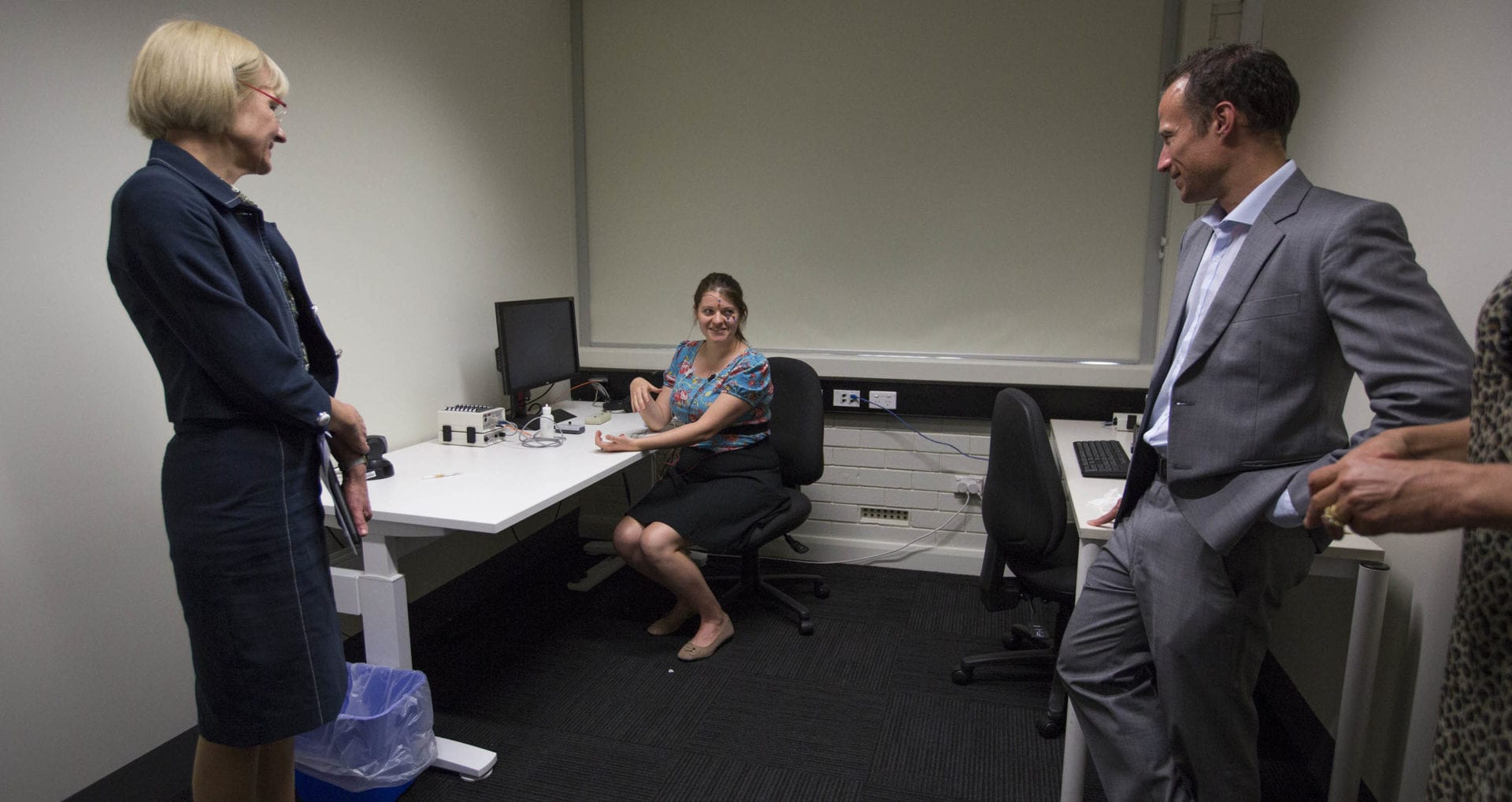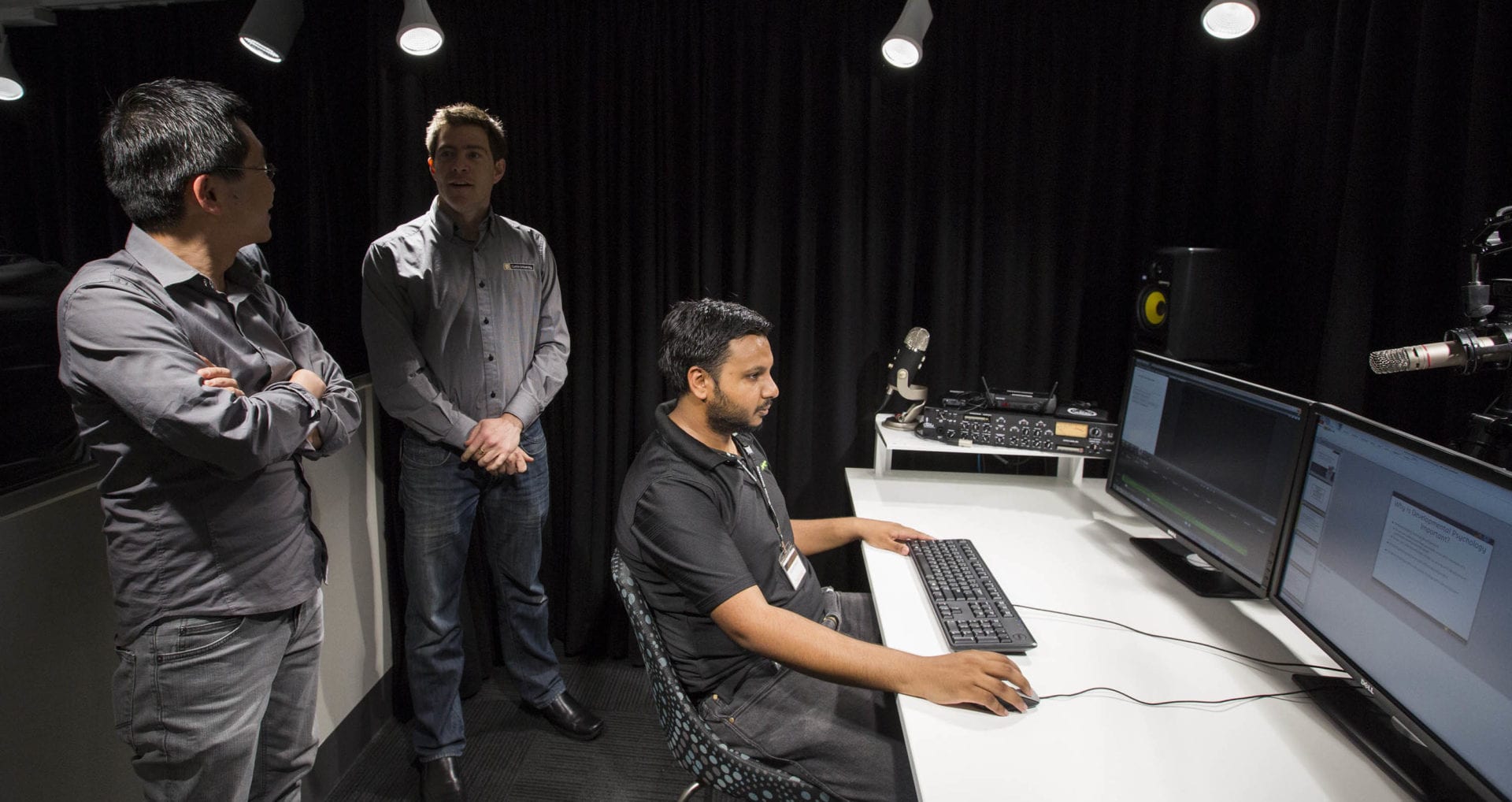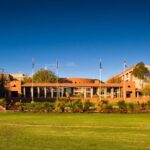Psychology at Curtin has been given a major boost with the opening of new, state-of-the-art laboratories within the Faculty of Health Sciences.
School of Psychology and Speech Pathology Professor Martin Hagger says the Psychology Experimental Research Laboratories (PERL-C) will benefit education, maximise the type of research conducted, and increase national and international collaborations between Curtin and external researchers in the psychology community.
“We need to recognise that within WA there’s a fairly small research community, so to be competitive on a national and global stage those collaborations need to happen,” he says.
“This will provide much better education for students because they will be able to access to a range of measures that they were not able to before.”
The labs include soundproofed booths, consultation rooms and an observation room with a one-way mirror to cater to new research in social psychology, emotional science and brain imaging. The facility also includes new research equipment including EEG electrodes for recording the electrical activity from a person’s brain and an eye-tracking device that measures a person’s gaze.
Professor Ottmar Lipp, from the school of Psychology and Speech Pathology, says the facilities will dramatically change the type of research that students and staff have conducted in the past.
“Before the facility was available more of the research that was done in the school was survey and questionnaire based, which is a good way to gain information,” he says.
“We will now have the opportunity to compliment that with behaviour measures and evaluations that we can report in the multiple computer labs, and we also will have the opportunity to record physiological responses.”
Professor Lipp says the facilities greatly benefit postgraduate students, who now have the opportunity to broaden their research projects like never before.
“We hope that not only the nature of the research projects will change but hopefully the quality of the projects as well, so that it will allow us to set up a better training environment for people who want to do either honours or post graduate studies in psychology,” he says.
“It will attract students who are doing projects that perhaps they wouldn’t have been able to do before. For example if they wanted to do a project in psychophysiology using the EEG equipment then we have the capacity to do that.
“Before, if we wanted to do that kind of research we either would suggest for them to go elsewhere or we would have to collaborate with another partner who had that equipment, now they have the opportunity to do that type of research right in the building itself.”
Professor Hagger says the new laboratories will put Curtin on par with other prominent psychology schools around the world.
“It will help us to attract some of the best staff from across the globe, whether that be academics or collaborators. They’ll hopefully come to the school and recognise that we have these facilities that will enable them to do the type of research they can do with us.”
The new facilities officially opened on 17 November with a tour of the labs and demonstrations of the equipment.
